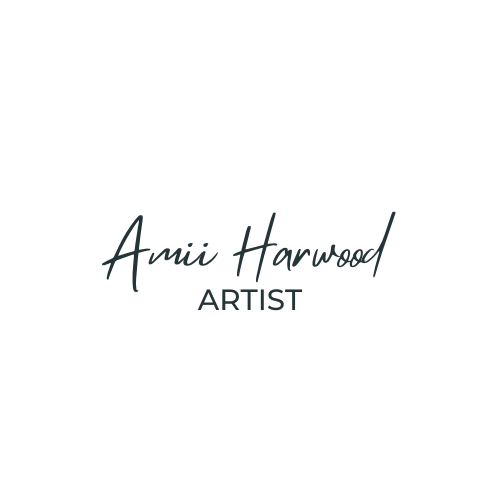Find your happy place
Repost of a featured article in The Times Higher Education magazine, 28 Sept 2023 (with permission).
This article was written with an academic audience in mind. A call to consider finding your happy place in university life. An earlier article ‘art hobby to art career’, written for emerging artists, can be found here.
“Swallowtail” by Amii Harwood
I emerged from my PhD as an expert in my field. I had multiple peer-reviewed papers, including second-author status on a publication in the journal Science. Excited by research, I became a bit of a magpie, eager to form new collaborations, apply my skills to new challenges and grow my knowledge. And I was rewarded for my unstinting efforts with a lectureship.
The initial relief from moving away from fixed-term research contracts, however, was short-lived. Now came a new battle for job security. The pressure to constantly prove myself with papers and grant income, even as teaching loads were increasing, was immense.
Moreover, by the time I gained my “confirmation of appointment” (tenure), I already had one child and was about to go on maternity leave with the second. And I had only been back six months when the pandemic lockdowns hit, forcing me into survival mode as I balanced childcare and working from home.
My career stalled. I was no longer in the box labelled “early-career researcher” and associated opportunities were closing. Meanwhile, administrative duties had become overwhelming. I was trying my best juggling multiple roles, yet I still needed to prove my worth as a researcher at appraisals.
So at the end of last summer, I did the unthinkable. I added more into my daily routine.
“I don’t have time” had become my default response to suggestions that I take on anything new, both at home and at work. But it was worse than that. With a demanding job and two young kids, I had no mental capacity for anything new.
The key to breaking that impasse was to find something away from the office that took my mind elsewhere – and to view that mental depressurising as a necessity. I asked myself what brought me joy. With my offspring now four and seven, generating healthy social calendars of their own, I also needed something that didn’t require the commitment of a fixed timeslot.
The answer for others might be running or climbing or music or creative writing, but for me it was art. I had loved drawing as a child and, fortunately, technology has moved on since then, so online tutorials are easy to find and available on-demand. I found one on how to draw a cat’s eye and started there.
If you start viewing your time for joyful activity as indispensable, you start finding more of it. I started by snatching snippets of time from my day, but I now get up early in the morning or during the night to draw for a couple of hours. I absolutely love it and I revel in the sense of achievement. Moreover, I can now bring that positivity into my day job as an academic.
For me, however, there was another necessary step. I no longer loved my job, but I was still passionate about aspects of it. I think this must be true for many academics. After all, we are not the same people we were when we started our doctoral work. If you’re feeling like an imposter or constantly needing to prove yourself, perhaps you’re overwhelmed in your current post. Consider whether you are working in the area where you perform at your best. Avoid comparing yourself with others and ask yourself which aspects of the job give you the most satisfaction. (Yes, that box on your appraisal form is important).
I used to be good at finding a hook, generating a story and weaving a paper or scribing a grant proposal. But, along the way, I began to associate those things with the relentless pressure to succeed and I lost enthusiasm for the research.
Now, I have accepted that I do not need to be the best at everything. I can let go of some real or imagined pressures and still proudly remain an academic in the School of Environmental Sciences at the University of East Anglia (UEA).
Like many other UK universities, UEA is undergoing upheaval due to financial challenges. As part of the cost-saving initiatives, I have opted to reduce my working hours to further reclaim a work-life balance that I lost as an early-career researcher.
With the support of line managers and colleagues, I have dropped research from my role. I no longer wish to be a world-leading researcher. But I am a passionate advocate for improving the way quantitative skills are taught in further and higher education. I have found my niche in the area where I am of most value to my employer and my students. I have work to do here and on-the-ground experience to impart.
So now, by day, I’m a geographer who gets great satisfaction from helping my students improve their confidence with maths. By night, I’m an artist. And I’m available not only for commissions but also for chats if my story resonates with you.
Our work really does need to give us joy – but I also know that finding that joy can involve a great deal of pain.


